For my next to last night in Greece, I booked a room on the
outskirts of Missolonghi, a seaside town along the highway on the way back to
Athens from the Ionian Isles and northwest Greece. The small city is best known
to English speakers as the place Lord Byron died of fever in 1824 while trying organized
troops during the Greek War of Independence. To Greeks it’s better known as the
site of the Gate of Exodus when two years later on the night of April 22, 1826,
9,000 Greeks escaped the city during a year-long Turkish siege which eventually
captured it. The town’s main sight is the Garden of Heroes where numerous statues
and memorials commemorate the events of 1824-26, including one of Lord Byron.
Beyond that, though, I can’t say I was very impressed with the town.
My stay there was pleasant enough at a nice studio room at
Flo’s Apartments in Missolonghi’s outskirts. On my arrival shortly before dusk,
I headed into town in search of some food and provisions from a grocery store
and discovered what seemed to be some kind of festivities taking place. One observation I have about Greece is a
relative dearth of the kind of traditional festive events you often encounter
in many other European countries. So I
was a bit excited when I saw people parading down a street it what seemed like
some traditional Greek costumes, including men dressed in soldier costumes
similar to those who guard the tomb of the unknown soldier in Athens. And there
were men on horses as well.
However, it
all seemed rather disorganized and non-continuous as I watched.
It didn’t take long for me to realize, though, from the
appearance and behavior of the people involved and the type of music, this was
something a very different from standard Greek culture, that it was a Gypsy/Romani
gathering of some sort. The horse riding was rather wild, with horses
occasionally bucking their riders or charging, the appearance of the people participating
generally far darker than most Greeks, and the drumming and string music
sounding more like something out of India (where the Romani are believed to
originate) than Greece. And I think I
saw more police around within the hour I was in town that evening than I saw
elsewhere in nearly six weeks in Greece. It had previously struck me that
Greece seems to be a country with almost no police visibility.
I asked what was going on in a shop where I bought some
beer. The cashier seemed reluctant to say. “It’s the end of a three-day event!”
was all. That was after I noticed a
Romani man in front of me paying for a few select items at the register while
his three little rugrats wandered out with numerous sweets and snacks that
clearly were not paid for.
Stereotypes
exist for a reason. I apparently took a
wrong turn on the drive back to my apartment and found myself driving through
what must be Messolonghi’s Romani slum to the east of the town center. Wow, this looked something more like India or
Gaza than Europe. I’ve seen Youtube videos of such appalling Gypsy slums in
countries like Slovakia and Romania but did not realize Greece also had a
significant population.
I think my drive back to Athens cost me at least 30 Euros in
tolls, including the 15 Euro toll for the suspension bridge which connects the
Peloponnese Peninsula with southern mainland Greece at the narrow point between
the Gulfs of Patras and Corinth. I think taking the toll expressway was worth
every penny, though, considering what slow going it is on lesser roads through
Greece’s rugged terrain. By and large, they haven’t figured out bypasses in
Greece, so the old roads take you through congested town centers. They also go over mountain passes, whereas
the new toll expressways go through tunnels.
I wanted to stop in Ancient Corinth on my way back to
Athens. John and I looked for it three
weeks earlier, but I gave up after not being able to find it. It is apparently located right off the
expressway between Patras and Corinth and easy to reach from the road. The thermometer on my rental car was
registering 39*C (102*F), though. Do I
want to be outside in the sun looking at more ruins in those temperatures? I think not.
I had seen enough ruins not to endure such heat to see more, and
continued toward Athens.
My last night was in a love motel on Athens industrial
outskirts a block from the one I stayed at with John. This one was slightly nicer than the previous
one for about the same low price. When booking
a place for a night on Booking.com I don’t expect that I’m going to be staying
somewhere that’s often booked by the hour, but it happens. One of the notable
things about such places is that sheets and towels are all wrapped in plastic
to prove that they’ve been washed since last use. You put the sheets on
yourself.
I thought I was leaving early enough to beat Athens traffic,
but that was not the case. I still got to the airport with plenty of time
before my rental car was due back and even more time before my early afternoon
flight to Atlanta. Athens to Atlanta is
over 11 hours, the kind of time I associate more with trans-Pacific flights. The trip home all seemed to go smoothly until
my flight from Salt Lake City to Bozeman was delayed for two hours because Delta
didn’t have enough flight attendants available for the flight until a plane
from somewhere else got in. That put me
in Bozeman around 2:00 A.M., an hour when it’s impossible to get transportation
from the airport. I ended up doing what
I’ve been saying I could do for three years. I walked home from the
airport. The approximately 2.5 miles
took me 40 minutes on a beautiful night, getting me in the door right at 3:00
A.M., altogether 30 hours from when I left my hotel in Athens.
Overall, this was a great trip that mostly ran very smoothly. Greece was long near the top of my list of
places I wanted to see, so it was exciting to finally be able to make it come
to fruition.

 Missolonghi, Greece
Missolonghi, Greece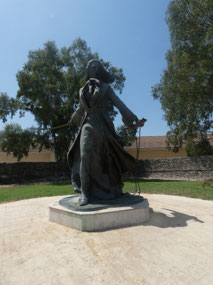
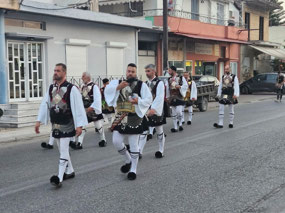
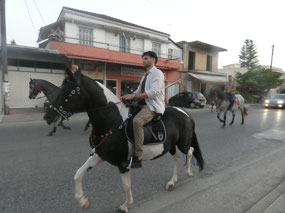
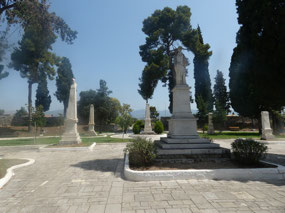
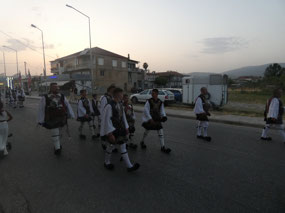

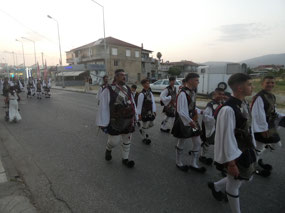
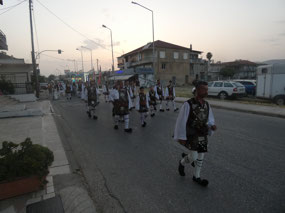
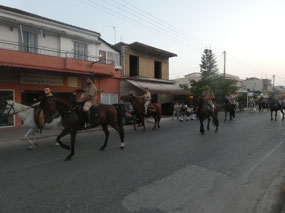
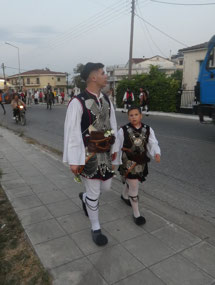
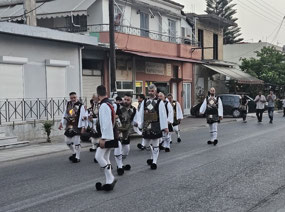
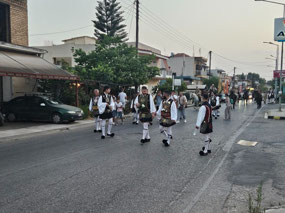
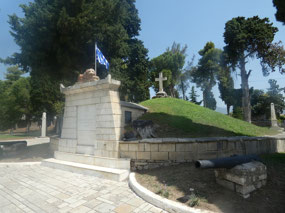
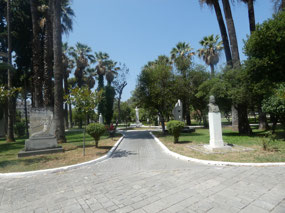
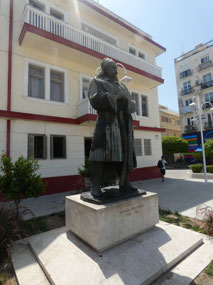
2025-05-23